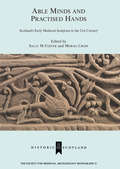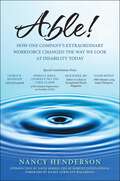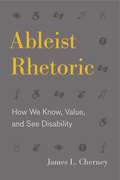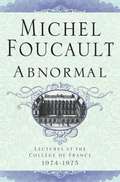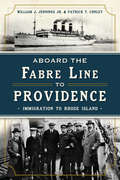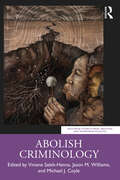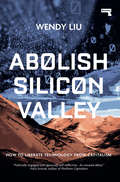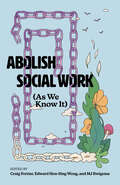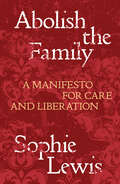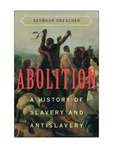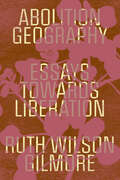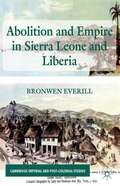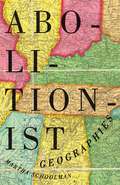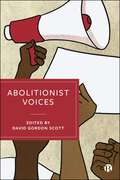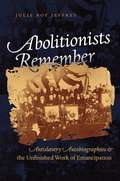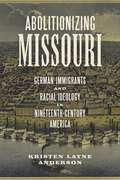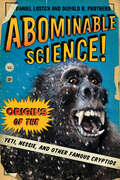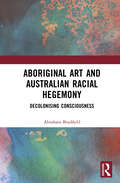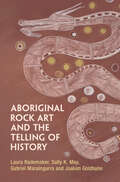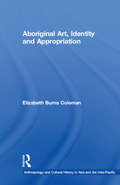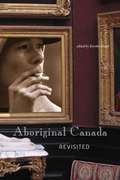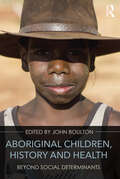- Table View
- List View
Able Minds and Practiced Hands: Scotland's Early Medieval Sculpture in the 21st Century (The Society for Medieval Archaeology Monographs #Vol. 23)
by SallyM. FosterOne hundred years on from J Romilly Allen and Joseph Anderson's 1903 landmark publication, The Early Christian Monuments of Scotland, twenty six essays explore the current state of knowledge of early medieval sculpture in Scotland. They demonstrate the unique value of this material in contributing to our understanding of the society and people that created it between 1000 to 1500 years ago. Today's approaches and techniques offer new insights, as well as great hope, for what might be learnt from future study of 'familiar' and new material alike. The essays exemplify the ever-diversifying, interdisciplinary approaches that are being taken to the study of early medieval sculpture. Key themes that emerge include: the interdependence of conservation, research and access; the need for a 21st-century inventory of the sculpture; the breadth and value of the wide range of the research tools that now exist; conservation issues, including the politics of how and where sculpture should be protected, and the pressing need to identify priorities for action; and, what is probably the most important development over the last 100 years, the increase in awareness of the range of values and significances that attaches to early medieval sculpture, including appreciation of context.
Able!: How One Company's Extraordinary Workforce Changed the Way We Look at Disability Today
by Nancy HendersonIn a time when companies are outsourcing abroad, Habitat International, a Tennessee-based carpet manufacturer, has managed to achieve superior levels of productivity at home, often two to three times greater than its competition. Habitat's business has grown enormously, with much of its new business coming from work outsourced to them by competitors who could not come close to matching its productivity. Habitat's secret: they hire the people no one else will. At Habitat three of every four workers have a physical or mental disability. They earn normal wages and are cross-trained on every job. They work harder, with less supervision, lower turnover and an unparalleled level of loyalty. The challenges have been significant; the rewards extraordinary. This is Habitat's story. It's a powerful and moving tale of personal courage, deep commitment and challenging expectations. It's a story of success and personal triumph. It'll change the way you think about business … and the people around you.
Ableist Rhetoric: How We Know, Value, and See Disability (RSA Series in Transdisciplinary Rhetoric #11)
by James L. CherneyAbleism, a form of discrimination that elevates "able" bodies over those perceived as less capable, remains one of the most widespread areas of systematic and explicit discrimination in Western culture. Yet in contrast to the substantial body of scholarly work on racism, sexism, classism, and heterosexism, ableism remains undertheorized and underexposed. In this book, James L. Cherney takes a rhetorical approach to the study of ableism to reveal how it has worked its way into our everyday understanding of disability.Ableist Rhetoric argues that ableism is learned and transmitted through the ways we speak about those with disabilities. Through a series of textual case studies, Cherney identifies three rhetorical norms that help illustrate the widespread influence of ableist ideas in society. He explores the notion that "deviance is evil" by analyzing the possession narratives of Cotton Mather and the modern horror touchstone The Exorcist. He then considers whether "normal is natural" in Aristotle’s Generation of Animals and in the cultural debate over cochlear implants. Finally, he shows how the norm "body is able" operates in Alexander Graham Bell’s writings on eugenics and in the legal cases brought by disabled athletes Casey Martin and Oscar Pistorius. These three simple equivalencies play complex roles within the social institutions of religion, medicine, law, and sport. Cherney concludes by calling for a rhetorical model of disability, which, he argues, will provide a shift in orientation to challenge ableism’s epistemic, ideological, and visual components. Accessible and compelling, this groundbreaking book will appeal to scholars of both rhetoric and disability studies, as well as to disability rights advocates.
Ableist Rhetoric: How We Know, Value, and See Disability (RSA Series in Transdisciplinary Rhetoric)
by James L. CherneyAbleism, a form of discrimination that elevates “able” bodies over those perceived as less capable, remains one of the most widespread areas of systematic and explicit discrimination in Western culture. Yet in contrast to the substantial body of scholarly work on racism, sexism, classism, and heterosexism, ableism remains undertheorized and underexposed. In this book, James L. Cherney takes a rhetorical approach to the study of ableism to reveal how it has worked its way into our everyday understanding of disability.Ableist Rhetoric argues that ableism is learned and transmitted through the ways we speak about those with disabilities. Through a series of textual case studies, Cherney identifies three rhetorical norms that help illustrate the widespread influence of ableist ideas in society. He explores the notion that “deviance is evil” by analyzing the possession narratives of Cotton Mather and the modern horror touchstone The Exorcist. He then considers whether “normal is natural” in Aristotle’s Generation of Animals and in the cultural debate over cochlear implants. Finally, he shows how the norm “body is able” operates in Alexander Graham Bell’s writings on eugenics and in the legal cases brought by disabled athletes Casey Martin and Oscar Pistorius. These three simple equivalencies play complex roles within the social institutions of religion, medicine, law, and sport. Cherney concludes by calling for a rhetorical model of disability, which, he argues, will provide a shift in orientation to challenge ableism’s epistemic, ideological, and visual components. Accessible and compelling, this groundbreaking book will appeal to scholars of rhetoric and of disability studies as well as to disability rights advocates.
Abnormal: Lectures at the Collège de France 1974-1975
by Michel Foucault Graham Burchell Arnold I. DavidsonThe second volume in an unprecedented publishing event: the complete Collège de France lectures of one of the most influential thinkers of the last century Michel Foucault remains among the towering intellectual figures of postmodern philosophy. His works on sexuality, madness, the prison, and medicine are classics; his example continues to challenge and inspire. From 1971 until his death in 1984, Foucault gave public lectures at the world-famous Collège de France. These lectures were seminal events. Attended by thousands, they created benchmarks for contemporary critical inquiry. The lectures comprising Abnormal begin by examining the role of psychiatry in modern criminal justice, and its method of categorizing individuals who "resemble their crime before they commit it. " Building on the themes of societal self-defense in the first volume of this series, Foucault shows how and why defining "abnormality" and "normality" were prerogatives of power in the nineteenth century, shaping the institutions--from the prison system to the family--meant to deal in particular with “monstrosity,” whether sexual, phsyical, or spiritual. The Collège de France lectures add immeasurably to our appreciation of Foucault's thought, and offer a unique window on his singular worldview.
Aboard the Fabre Line to Providence: Immigration to Rhode Island
by Patrick T. Conley William J. Jennings Jr.In an era when immigration was at its peak, the Fabre Line offered the only transatlantic route to southern New England. One of its most important ports was in Providence, Rhode Island. Nearly eighty-four thousand immigrants were admitted to the country between the years 1911 and 1934. Almost one in nine of these individuals elected to settle in Rhode Island after landing in Providence, amounting to around eleven thousand new residents. Most of these immigrants were from Portugal and Italy, and the Fabre Line kept up a brisk and successful business. However, both the line and the families hoping for a new life faced major obstacles in the form of World War I, the immigration restriction laws of the 1920s, and the Great Depression. Join authors Patrick T. Conley and William J. Jennings Jr. as they chronicle the history of the Fabre Line and its role in bringing new residents to the Ocean State.
Abolish Criminology (Routledge Studies in Penal Abolition and Transformative Justice)
by Viviane Saleh-Hanna Jason M. Williams Michael J. CoyleAbolish Criminology presents critical scholarship on criminology and criminal justice ideologies and practices, alongside emerging freedom-driven visions and practices for new world formations.The book introduces readers to a detailed history and analysis of crime as a concept and its colonizing trajectories into existence and enforcement. These significant contexts buried within peculiar academic histories and classroom practices are often overlooked or unknown outside academic and public discussions, causing the impact of racializing-gendering-sexualizing histories to extend and grow through criminology’s creation of crime, extending how the concept is weaponized and enforced through the criminal legal system. It offers written, visual, and poetic teachings from the perspectives of students, professors, imprisoned and formerly imprisoned persons, and artists. This allows readers to engage in multi-sensory, inter-disciplinary, and multi-perspective teachings on criminology’s often discussed but seldom interrogated mythologies on violence and danger, and their wide-reaching enforcements through the criminal legal system’s research, theories, agencies, and dominant cultures.Abolish Criminology serves the needs of undergraduate and graduate students and educators in the social sciences, arts, and humanities. It will also appeal to scholars, researchers, policy makers, activists, community organizers, social movement builders, and various reading groups in the general public who are grappling with increased critical public discourse on policing and criminal legal reform or abolition.
Abolish Silicon Valley: How to Liberate Technology from Capitalism
by Wendy LiuFormer insider turned critic Wendy Liu busts the myths of the tech industry, and offers a galvanising argument for why and how we must reclaim technology's potential for the public good.Former insider turned critic Wendy Liu busts the myths of the tech industry, and offers a galvanising argument for why and how we must reclaim technology's potential for the public good."Lucid, probing and urgent. Wendy Liu manages to be both optimistic about the emancipatory potential of tech and scathing about the industry that has harnessed it for bleak and self-serving ends." -- Naomi Klein, author of On Fire: The Burning Case for a Green New Deal"An inspiring memoir manifesto...Technologists all over the world are realizing that no amount of code can substitute for political engagement. Liu's memoir is a road map for that journey of realization." -- Cory Doctorow, author of Radicalized and Little BrotherInnovation. Meritocracy. The possibility of overnight success. What's not to love about Silicon Valley?These days, it's hard to be unambiguously optimistic about the growth-at-all-costs ethos of the tech industry. Public opinion is souring in the wake of revelations about Cambridge Analytica, Theranos, and the workplace conditions of Amazon workers or Uber drivers. It's becoming clear that the tech industry's promised "innovation" is neither sustainable nor always desirable.Abolish Silicon Valley is both a heartfelt personal story about the wasteful inequality of Silicon Valley, and a rallying call to engage in the radical politics needed to upend the status quo. Going beyond the idiosyncrasies of the individual founders and companies that characterise the industry today, Wendy Liu delves into the structural factors of the economy that gave rise to Silicon Valley as we know it. Ultimately, she proposes a more radical way of developing technology, where innovation is conducted for the benefit of society at large, and not just to enrich a select few.
Abolish Social Work (As We Know It)
by Craig Fortier Edward Hon-Sing Wong Mj RwigemaAbolish Social Work (As We Know It) responds to the timely and important call for police abolition by analyzing professional social work as one alternative commonly proposed as a ready-made solution to ending police brutality. Drawing on both historical analysis and lessons learned from decades of organizing abolitionist and decolonizing practices within the field and practice of social work (including social service, community organizing, and other helping fields), this book is an important contribution in the discussion of what abolitionist social work could look like. This edited volume brings together predominantly BIPOC and queer/trans* social work survivors, community-based activists, educators, and frontline social workers to propose both an abolitionist framework for social work practice and a transformative framework that calls for the dissolution and restructuring of social work as a profession. Rejecting the practices and values encapsulated by professional social work as embedded in carceral and colonial systems, Abolish Social Work (As We Know It) moves us towards a social work framework guided by principles of mutual aid, accountability, and relationality led by Indigenous, Black, queer/trans*, racialized, immigrant, disabled, poor and other communities for whom social work has inserted itself into their lives.
Abolish the Family: A Manifesto for Care and Liberation
by Sophie LewisWhat if we could do better than the family? We need to talk about the family. For those who are lucky, families can be filled with love and care, but for many they are sites of pain: from abandonment and neglect, to abuse and violence. Nobody is more likely to harm you than your family. Even in so-called happy families, the unpaid, unacknowledged work that it takes to raise children and care for each other is endless and exhausting. It could be otherwise: in this urgent, incisive polemic, leading feminist critic Sophie Lewis makes the case for family abolition. Abolish the Family traces the history of family abolitionist demands, beginning with nineteenth century utopian socialist and sex radical Charles Fourier, the Communist Manifesto and early-twentieth century Russian family abolitionist Alexandra Kollontai. Turning her attention to the 1960s, Lewis reminds us of the anti-family politics of radical feminists like Shulamith Firestone and the gay liberationists, a tradition she traces to the queer marxists bringing family abolition to the twenty-first century. This exhilarating essay looks at historic rightwing panic about Black families and the violent imposition of the family on indigenous communities, and insists: only by thinking beyond the family can we begin to imagine what might come after.
Abolition
by Seymour DrescherIn one form or another, slavery has existed throughout the world for millennia. It helped to change the world, and the world transformed the institution. In the 1450s, when Europeans from the small corner of the globe least enmeshed in the institution first interacted with peoples of other continents, they created, in the Americas, the most dynamic, productive, and exploitative system of coerced labor in human history. Three centuries later these same intercontinental actions produced a movement that successfully challenged the institution at the peak of its dynamism. Within another century a new surge of European expansion constructed Old World empires under the banner of antislavery. However, twentieth-century Europe itself was inundated by a new system of slavery, larger and more deadly than its earlier system of New World slavery. This book examines these dramatic expansions and contractions of the institution of slavery and the impact of violence, economics, and civil society in the ebb and flow of slavery and antislavery during the last five centuries.
Abolition Geography: Essays Towards Liberation
by Ruth Wilson GilmoreThe first collection of writings from one of the foremost contemporary critical thinkers on racism, geography and incarcerationGathering together Ruth Wilson Gilmore&’s work from over three decades, Abolition Geography presents her singular contribution to the politics of abolition as theorist, researcher, and organizer, offering scholars and activists ways of seeing and doing to help navigate our turbulent present. Abolition Geography moves us away from explanations of mass incarceration and racist violence focused on uninterrupted histories of prejudice or the dull compulsion of neoliberal economics. Instead, Gilmore offers a geographical grasp of how contemporary racial capitalism operates through an &“anti-state state&” that answers crises with the organized abandonment of people and environments deemed surplus to requirement. Gilmore escapes one-dimensional conceptions of what liberation demands, who demands liberation, or what indeed is to be abolished. Drawing on the lessons of grassroots organizing and internationalist imaginaries, Abolition Geography undoes the identification of abolition with mere decarceration, and reminds us that freedom is not a mere principle but a place. Edited with an introduction by Brenna Bhandar and Alberto Toscano.
Abolition Time: Grammars of Law, Poetics of Justice
by Jess A. GoldbergHow Black Atlantic literature can challenge conventions and redefine literary scholarshipAbolition Time is an invitation to reenvision abolitionist justice through literary studies. Placing critical race theory, queer theory, critical prison studies, and antiprison activism in conversation with an archive of Black Atlantic literatures of slavery, Jess A. Goldberg reveals how literary studies can help undo carceral epistemologies embedded in language and poetics. Goldberg examines poetry, drama, and novels from the nineteenth century through the twenty-first—such as William Wells Brown&’s The Escape, Angelina Weld Grimké&’s Rachel, Toni Morrison&’s A Mercy, and Claudia Rankine&’s Citizen—to consider literature and literary scholarship&’s roles in shaping societal paradigms. Focusing on how Black Atlantic literature disrupts the grammar of law and order, they show how these texts propose nonlinear theories of time that imagine a queer relationality characterized by care rather than inheritance, property, or biology. Abolition Time offers a framework for thinking critically about what is meant by the term justice in the broadest and deepest sense, using close reading to inform the question of abolishing prisons or the police and to think seriously about the most fundamental questions at the heart of the abolitionist movement.
Abolition and Empire in Sierra Leone and Liberia
by Bronwen EverillBronwen Everill offers a new perspective on African global history, applying a comparative approach to freed slave settlers in Sierra Leone and Liberia to understand their role in the anti-slavery colonization movements of Britain and America.
Abolitionist Geographies
by Martha SchoolmanTraditional narratives of the period leading up to the Civil War are invariably framed in geographical terms. The sectional descriptors of the North, South, and West, like the wartime categories of Union, Confederacy, and border states, mean little without reference to a map of the United States. In Abolitionist Geographies, Martha Schoolman contends that antislavery writers consistently refused those standard terms. Through the idiom Schoolman names &“abolitionist geography,&” these writers instead expressed their dissenting views about the westward extension of slavery, the intensification of the internal slave trade, and the passage of the Fugitive Slave Law by appealing to other anachronistic, partial, or entirely fictional north–south and east–west axes. Abolitionism&’s West, for instance, rarely reached beyond the Mississippi River, but its East looked to Britain for ideological inspiration, its North habitually traversed the Canadian border, and its South often spanned the geopolitical divide between the United States and the British Caribbean.Schoolman traces this geography of dissent through the work of Martin Delany, Ralph Waldo Emerson, William Wells Brown, and Harriet Beecher Stowe, among others. Her book explores new relationships between New England transcendentalism and the British West Indies; African-American cosmopolitanism, Britain, and Haiti; sentimental fiction, Ohio, and Liberia; John Brown&’s Appalachia and circum-Caribbean marronage. These connections allow us to see clearly for the first time abolitionist literature&’s explicit and intentional investment in geography as an idiom of political critique, by turns liberal and radical, practical and utopian.
Abolitionist Voices
by David Gordon Scott, Johannes FeestWhy have so many radical thinkers advocated for the abolition of prisons and punishment? And why have their ideas been so difficult to popularize or garner the political will for change? This book outlines several different approaches to penal abolitionism and showcases their calls for the ending of legal coercion, domination, and repression. This exciting and innovative edited collection shows how abolitionist ideas have continued topicality and relevance in the present day and how they can collectively help with devising new ways of thinking about social problems, as well as suggesting alternatives to existing penal policies, practices and institutions.
Abolitionists Remember
by Julie Roy JeffreyIn Abolitionists Remember, Julie Roy Jeffrey illuminates a second, little-noted antislavery struggle as abolitionists in the postwar period attempted to counter the nation's growing inclination to forget why the war was fought, what slavery was really like, and why the abolitionist cause was so important. In the rush to mend fences after the Civil War, the memory of the past faded and turned romantic--slaves became quaint, owners kindly, and the war itself a noble struggle for the Union. Jeffrey examines the autobiographical writings of former abolitionists such as Laura Haviland, Frederick Douglass, Parker Pillsbury, and Samuel J. May, revealing that they wrote not only to counter the popular image of themselves as fanatics, but also to remind readers of the harsh reality of slavery and to advocate equal rights for African Americans in an era of growing racism, Jim Crow, and the Ku Klux Klan. These abolitionists, who went to great lengths to get their accounts published, challenged every important point of the reconciliation narrative, trying to salvage the nobility of their work for emancipation and African Americans and defending their own participation in the great events of their day.
Abolitionizing Missouri: German Immigrants and Racial Ideology in Nineteenth-Century America (Antislavery, Abolition, and the Atlantic World)
by Kristen Layne AndersonHistorians have long known that German immigrants provided much of the support for emancipation in southern Border States. Kristen Layne Anderson's Abolitionizing Missouri, however, is the first analysis of the reasons behind that opposition as well as the first exploration of the impact that the Civil War and emancipation had on German immigrants' ideas about race. Anderson focuses on the relationships between German immigrants and African Americans in St. Louis, Missouri, looking particularly at the ways in which German attitudes towards African Americans and the institution of slavery changed over time. Anderson suggests that although some German Americans deserved their reputation for racial egalitarianism, many others opposed slavery only when it served their own interests to do so. When slavery did not seem to affect their lives, they ignored it; once it began to threaten the stability of the country or their ability to get land, they opposed it. After slavery ended, most German immigrants accepted the American racial hierarchy enough to enjoy its benefits, and had little interest in helping tear it down, particularly when doing so angered their native-born white neighbors. Anderson's work counters prevailing interpretations in immigration and ethnic history, where until recently, scholars largely accepted that German immigrants were solidly antislavery. Instead, she uncovers a spectrum of Germans' "antislavery" positions and explores the array of individual motives driving such diverse responses. . In the end, Anderson demonstrates that Missouri Germans were more willing to undermine the racial hierarchy by questioning slavery than were most white Missourians, although after emancipation, many of them showed little interest in continuing to demolish the hierarchy that benefited them by fighting for black rights.
Abominable Science!: Origins of the Yeti, Nessie, and Other Famous Cryptids
by Donald R. Prothero Daniel LoxtonThroughout our history, humans have been captivated by mythic beasts and legendary creatures. Tales of Bigfoot, the Yeti, and the Loch Ness monster are part of our collective experience. Now comes a book from two dedicated investigators that explores and elucidates the fascinating world of cryptozoology. Daniel Loxton and Donald R. Prothero have written an entertaining, educational, and definitive text on cryptids, presenting the arguments both for and against their existence and systematically challenging the pseudoscience that perpetuates their myths. After examining the nature of science and pseudoscience and their relation to cryptozoology, Loxton and Prothero take on Bigfoot; the Yeti, or Abominable Snowman, and its cross-cultural incarnations; the Loch Ness monster and its highly publicized sightings; the evolution of the Great Sea Serpent; and Mokele Mbembe, or the Congo dinosaur. They conclude with an analysis of the psychology behind the persistent belief in paranormal phenomena, identifying the major players in cryptozoology, discussing the character of its subculture, and considering the challenge it poses to clear and critical thinking in our increasingly complex world.
Abominable Science!: Origins of the Yeti, Nessie, and Other Famous Cryptids
by Donald R. Prothero Daniel Loxton&“A sharp analysis of the quest for unreal critters―cryptids, as they are called―and the people who pursue them . . . entertaining and thoroughly documented.&” —The Wall Street Journal Throughout our history, humans have been captivated by mythic beasts and legendary creatures. Tales of Bigfoot, the Yeti, and the Loch Ness monster are part of our collective experience. Now comes a book from two dedicated investigators that explores and elucidates the fascinating world of cryptozoology. Daniel Loxton and Donald R. Prothero have written an entertaining, educational, and definitive text on cryptids, presenting the arguments both for and against their existence and systematically challenging the pseudoscience that perpetuates their myths. After examining the nature of science and pseudoscience and their relation to cryptozoology, Loxton and Prothero take on Bigfoot; the Yeti, or Abominable Snowman, and its cross-cultural incarnations; the Loch Ness monster and its highly publicized sightings; the evolution of the Great Sea Serpent; and Mokele Mbembe, or the Congo dinosaur. They conclude with an analysis of the psychology behind the persistent belief in paranormal phenomena, identifying the major players in cryptozoology, discussing the character of its subculture, and considering the challenge it poses to clear and critical thinking in our increasingly complex world. &“As valuable for its analysis of the hunted as it is for the light it shines on the still-hopeful hunters.&” —Publishers Weekly &“Highly recommended for readers looking for scientific but accessible evaluations of the existence of five notable cryptids that have captured our imaginations.&” —Library Journal (starred review)
Aboriginal Art and Australian Racial Hegemony: Decolonising Consciousness
by Abraham BradfieldThis book explores the complexities of Indigenous and non-Indigenous relations in contemporary Australia. It unpacks the continuation of a pervasive colonial consciousness within settler-colonial settings, but also provokes readers to confront their own habits of thought and action. Through presenting a reflexive narrative that draws on the author’s encounters with Indigenous artists and their artwork, knowledge, stories, and lived experiences, this provocative and insightful work encourages readers to consider what decolonising means to them. It presents a compelling and relevant argument that calls for a reorientation of dominant discourses fixed within Eurocentric frameworks, whilst also addressing the deep complexities and challenges of living within intercultural settler-colonial settings where different views and perspectives clash and complement one another.
Aboriginal Art and the Telling of History
by Laura Rademaker Sally K. May Gabriel Maralngurra Joakim GoldhahnThe rock art of Australia is among the oldest, most complex, and most fascinating manifestations of human creativity and imagination in the world. Aboriginal people used art to record their experiences, ceremonies, and knowledge by embedding their understanding of the world in the landscape over many generations. Indeed, rock art serves as archives and libraries for Australia's Indigenous people. It is, in effect, its repository of memory. This volume explores Indigenous perspectives on rock art. It challenges the limits and assumptions of traditional, academic ways of understanding and knowing the past by showing how history has literally been painted 'on the rocks'. Each chapter features a biography of an artist or family of artists, together with an artwork created by contemporary artist Gabriel Maralngurra. By bringing together history, archaeology, and Indigenous artistic practice, the book offers new insights into the medium of rock art and demonstrates the limits of academic methods and approaches.
Aboriginal Art, Identity and Appropriation (Anthropology and Cultural History in Asia and the Indo-Pacific)
by Elizabeth Burns ColemanThe belief held by Aboriginal people that their art is ultimately related to their identity, and to the continued existence of their culture, has made the protection of indigenous peoples' art a pressing matter in many postcolonial countries. The issue has prompted calls for stronger copyright legislation to protect Aboriginal art. Although this claim is not particular to Australian Aboriginal people, the Australian experience clearly illustrates this debate. In this work, Elizabeth Burns Coleman analyses art from an Australian Aboriginal community to interpret Aboriginal claims about the relationship between their art, identity and culture, and how the art should be protected in law. Through her study of Yolngu art, Coleman finds Aboriginal claims to be substantially true. This is an issue equally relevant to North American debates about the appropriation of indigenous art, and the book additionally engages with this literature.
Aboriginal Canada Revisited: Politics And Cultural Expression In The 21st Century (International Canadian Studies Series)
by Kerstin KnopfExploring a variety of topics—including health, politics, education, art, literature, media, and film—Aboriginal Canada Revisited draws a portrait of the current political and cultural position of Canada’s Aboriginal peoples. While lauding improvements made in the past decades, the contributors draw attention to the systemic problems that continue to marginalize Aboriginal people within Canadian society.From the Introduction: “[This collection helps] to highlight areas where the colonial legacy still takes its toll, to acknowledge the manifold ways of Aboriginal cultural expression, and to demonstrate where Aboriginal and non-Aboriginal people are starting to find common ground.”Contributors include Aboriginal and non-Aboriginal scholars from Europe and Canada, including Marlene Atleo, University of Manitoba; Mansell Griffin, Nisga’a Village of Gitwinksihlkw, British Columbia; Robert Harding, University College of the Fraser Valley; Tricia Logan, University of Manitoba; Steffi Retzlaff, McMaster University; Siobhán Smith, University of British Columbia; Barbara Walberg, Confederation College.
Aboriginal Children, History and Health: Beyond Social Determinants
by John BoultonThis volume traces the complex reasons behind the disturbing discrepancy between the health and well-being of children in mainstream Australia and those in remote Indigenous communities. Invaluably informed by Boulton’s close working knowledge of Aboriginal communities, the book addresses growth faltering as a crisis of Aboriginal parenting and a continued problem for the Australian nation. The high rate and root causes of ill-health amongst Aboriginal children are explored through a unique synthesis of historical, anthropological, biological and medical analyses. Through this fresh approach, which includes the insights of specialists from a range of disciplines, Aboriginal Children, History and Health provides a thoughtful and innovative framework for considering Indigenous health.
